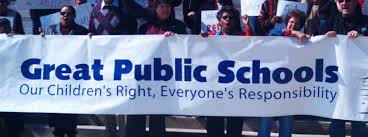 I don’t agree with the Orthodox Jewish practice of choking public schools of money in order to fund transportation to, and expenses for, their own community’s schools. But, I do understand why the Orthodox community does feel that the taxes they pay should be funding their children’s education as well as other students’. And I understand why the Orthodox want their children to have yeshiva educations.
I don’t agree with the Orthodox Jewish practice of choking public schools of money in order to fund transportation to, and expenses for, their own community’s schools. But, I do understand why the Orthodox community does feel that the taxes they pay should be funding their children’s education as well as other students’. And I understand why the Orthodox want their children to have yeshiva educations.
Yeshivas are better academically than public schools; they have dual language (Hebrew and English) curricula; midot (values) are taught; and a completely different approach to learning is part of the Torah (biblical) studies component, where students challenge the knowledge and positions of the study mates they partner up with and school days stretch from 7am until almost midnight. The learning culture at traditional yeshivas is fantastic and exceeds anything else I’ve encountered in a school environment.
However, I believe in egalitarian public education and the benefits that accrue to a society when students of many different cultures and religions come together under one roof and have the chance to appreciate each other through the experience of shared proximity. After all, people jointly share a planet and we are co-dependent.
I often ask myself, why can’t Orthodox Jewish children get their education basics at public school and then go on to after-school programs where students finish up their day with the Jewish and Torah studies that public school does not provide? Maybe special-curriculum needs communities could enjoy public education days that are a bit shorter and a bit less costly, to provide the time and money for after-school programs that meet those special curriculum needs.
Economies of scale and the obvious need for mass public education means it is most logical and efficient for all students to get their English-based educations at public schools. And no single community should be allowed to divert money away from public schools in order to fund private institutions that will benefit only their community’s children.
I would also love to see yeshiva educated parents get involved with reforming public education (real, community-engaged reform and not the drive to privatize that passes for reform today). Yeshiva educated parents could help bring real quality learning and a focus on personal values (midot) to our school systems. After all, public schools need improvement: by the time I was 15 years old, my school system in Englewood, NJ had nothing much to offer me academically and the social problems there were fierce. I was regularly attacked by young women who wanted to beat out of me the bass-line of the different drummer to which I marched. Drugs were for sale on campus, the party life raged on nights and weekends with many kids drinking alcohol and exploring sexually.
My sons recently finished public high school in a different town and their high school environments were pretty similar. My younger son comments that his classmates’ sensually permissive behaviour started, “as early as elementary school.” Both my sons completed their education in a school district considered to be superior and yet, they finished high school without having read great literature; did not know how to write a research paper and their math skills were basic, at best. They had not learned life skills like how to budget money, apply or interview for a job or maintain their health well through diet and regular exercise. How can young men and women go out into the world of higher education or the need to earn a living, lacking these basic skills?
The Jewish community knows that school needs to be the time and place for learning, personal development .. acquisition of skills for career shaping .. discovering academic interests and the type of passions that can be parlayed into fulfilling employment; and the development of collaboration skills. Students of Jewish day schools and traditional yeshivas – no matter how poor are the communities in which schools are situated – are graduating with all of this knowledge.
Yeshiva parents also have the ability to hold teachers and administrator personally and socially accountable for their children’s education. School board campaigners might also want to take a look at how Orthodox communities go about identifying candidates and getting them elected, because they are doing both of these tasks well.
Well, I’ve certainly wandered far enough over the vista of multi-cultural education. Time to move on to something else today. If you have a relevant thought, please share it.
